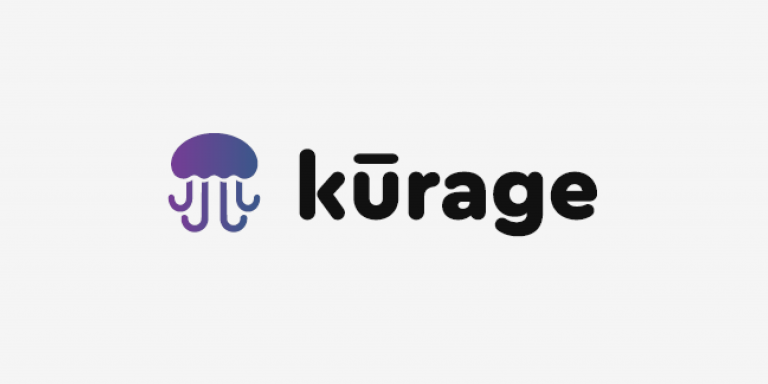
Kurage, a Lyon-based start-up, has set itself the mission of restoring mobility to those who have partially or completely lost it and enabling them to (re)practice sports and physical activity. Its Neuroskin solution, based on deep learningand neuromuscular remobilization by electrostimulation, is the result of a collaboration between the laboratories of the ENS / CNRS, the Hospices Civils de Lyon, the Hospital of Saint Etienne and the Faculty of Sciences and Sports of Dijon.
Vance Bergeron, currently Director of Research at the Physics Laboratory of the ENS in Lyon, left the USA for France in 2008 and joined the CNRS. An accident will lead him to reorient his research and create in 2015 the association ANTS (Advance Neuro Rehabiliation Therapies and Sport), he is moreover at the origin of the opening in 2018 of the 1st sports hall in France dedicated to motor disabilities.
The same year, he launched the Circles project with Amine Metani, one of his colleagues at the ENS, whose objective was to restore mobility to the paralyzed limbs of tetraplegic people thanks to an intelligent pedal board for bicycle or rowing machine, intended for gyms or rehabilitation centers.
Within the framework of this project, Amine Metani will join forces with Rudi Gombauld and Anil Aksoz to create, on March 13, 2020, Kurage (jellyfish in Japanese), a start-up specialized in the development of electrostimulation bicycles and rowing machines, intended for functional rehabilitation centers and gyms dedicated to people with motor disabilities, thanks to the support of Pulsalys.
Rudi Gombauld, CEO of Kurage, explained at the time:
“This project was born in 2015 under the impetus of a CNRS researcher with a passion for cycling who received the CNRS Innovation Medal in 2019, who became a quadriplegic following an accident. He then decided to develop a technology allowing him to remobilize his paralyzed limbs and resume physical activity. This technology was developed at the Physics Laboratory of the Ecole Nationale Supérieure de Lyon (Claude Bernard Lyon 1 University, ENS of Lyon and CNRS) and the Faculty of Science and Sports of Dijon. Today, it is aimed at paraplegics and quadriplegics or people suffering from neuromuscular problems (multiple sclerosis, Parkinson’s disease, etc.) or even senior citizens whose neuromuscular system is weakened.
The Neuroskin solution, based on deep learning, reproduces and then increases the capacities of the central nervous system (CNS), in order to restore the body’s ability to move, through a second skin via electrical muscle stimulation. The company was awarded the Deep Tech label by BPI in 2020, as well as the French Tech Emergence grant, the i-Lab 2021 competition and the European DIH Hero 2021 competition.
Integrated with adapted fitness equipment, such as bicycles and rowing machines, and with smart clothing worn by the user, this device remobilizes paralyzed or weakened limbs via electrical waves. The electrodes send low-intensity electrical impulses which, by stimulating the motor nerves, will trigger muscle contractions and recreate functional movement in a controlled and safe manner.
Initially designed to improve the well-being of disabled people, it now also accompanies athletes in their training.
Kurage’s ambition today is to make these people walk again. At the same time, it is pursuing the development of a textile exoskeleton.
Translated from Focus sur Neuroskin, solution de la start-up Kurage, qui veut mettre le sport à la portée de tous









